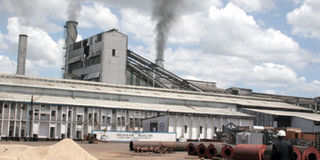Report reveals rot in sugar sub-sector

The report on malpractices in the sugar industry will not be sweet news for growers in Western Kenya. Photo/FILE
Bribery and manipulation of weighing scales at weighbridges have been cited as major issues affecting the sugar industry.
Drivers also stand accused of complicity by positioning trucks ‘poorly’ so that only a portion of the harvest is weighed.
The report, jointly carried out by Transparency International-Kenya and Sugar Campaign for Change Movement (Sucam), holds that although sugarcane should be harvested at 24 months, farmers were selectively picked after giving out bribes.
“Some of the malpractices related to delay in harvesting included ‘helicopter harvesting’ where farms are picked selectively often commencing with those belonging to officials of milling companies.
“Some officials authorised to schedule harvesting collect bribes to influence who will access the services first. It was reported that some transporters occasionally extort bribes to ferry the harvested cane,” reads part of the report.
It also accuses loaders of demanding bribes from farmers to pack the cane harvest.
“Chuch Ber a form of inducement demanded by the loaders is almost institutionalised as a bribe in the Nyando sugar belt,” say the findings.
Most widespread
Others include the loss of sugarcane during delivery.
The study found out that the disappearance of part of the harvests during delivery is the most widespread form of impropriety in production.
“Eighty-six per cent of the farmers interviewed reported that they have been victims of cane theft. Seventy per cent believed that most sugarcane disappears at the weighbridges,” the report titled an integrity study of sugar sub sector in western region says.
The study done between September 23 and 30 was conducted in the west Kenya and Nyando Basin sugar growing areas.
The two organisations said they sampled 547 farmers and covered eight private and publicly owned sugar milling companies.
The study also accuses most milling companies of cashing in on the grant of fertiliser to farmers as an input loan.
The grant attracts some interest and from the study, only 3 per cent of the farmers interviewed reported that the prices of fertilisers were declared before delivery, creating an opportunity for the companies to charge farmers an inflated price far above the market price.
“Farmers reported that the invoiced cost for inputs is often much higher than the actual cost incurred. On average, the invoiced amount for farm inputs was reported to be almost four times (388 per cent) the actual cost,” says the report.
Due diligence
And to curb the malpractices, the two organisations are calling for the publication of public sugar company accounts and privatisation as a priority.
Privatisation, says the study, should be on the basis of initial public offer.
This, the report says, would subject the process to a high threshold of due diligence.
The study also recommends the repositioning and diversification of the sugar sector, energy and ethanol and the amendment of the Sugar Act.




